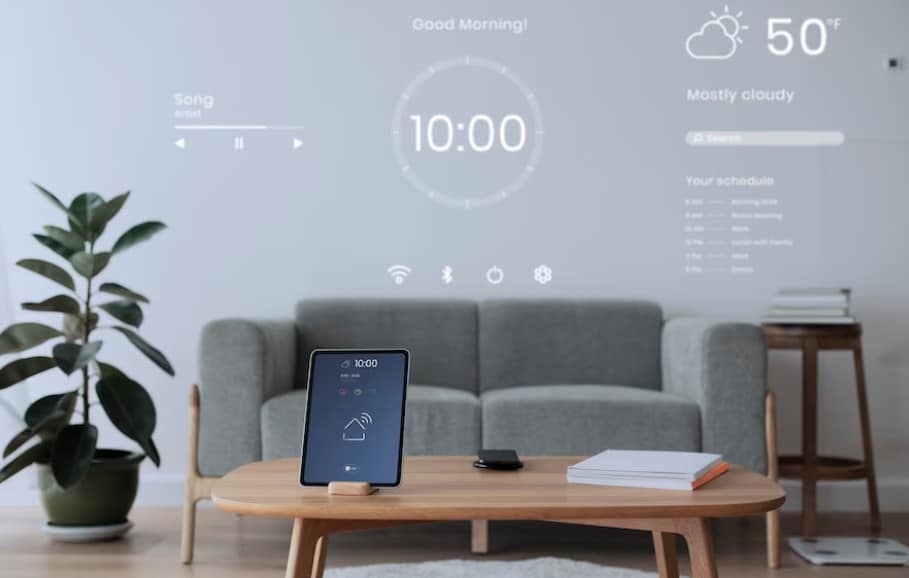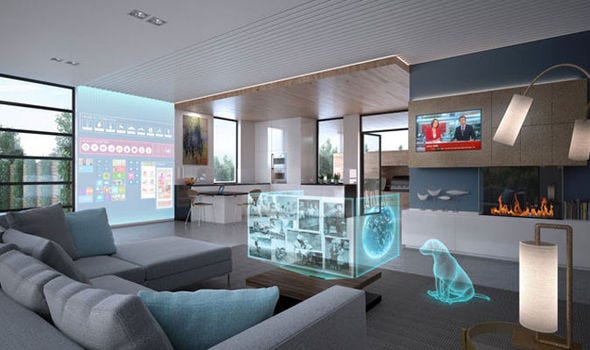14 Crucial Benefits of Smart Home Technology
In the dynamic landscape of the 21st century, the integration of smart technology into our homes has gradually transitioned from a luxury to a necessity. Not only does it facilitate a seamless and efficient lifestyle, but it also substantially augments the value and appeal of our homes in the real estate market.

The integration of smart home enhancements not only caters to modern comfort and security needs but also potentially offers a significant return on investment (ROI) when it comes to selling a property. The infusion of intelligent systems within homes is seen as a valuable asset, promising prospective homeowners a life intermingled with convenience and state-of-the-art technology.
1. Elevated Comfort and Convenience:
In the hustle and bustle of modern life, the lure of convenience and comfort within the confines of our homes has never been more enticing. Smart home technology seeks to bridge this gap, fostering a living environment where sophistication meets ease. Let’s delve into how the centralized control and intelligent appliances at the helm of this technology are revolutionizing our domestic lives.
2. Centralized Control:
Smart home technology stands as a beacon of convenience in contemporary living. Centralized control of various home systems means you can manage lighting, heating, and security systems from a single device, often remotely through a smartphone or tablet.

This centralized system not only simplifies home management but also allows homeowners to tailor their environment to their preferences seamlessly. Imagine adjusting the thermostat or switching off the lights without having to move an inch, a reality made possible with centralized control.
This innovation puts the power of creating a personalized atmosphere right at your fingertips. You can easily create scenarios or routines where a single command adjusts various settings throughout your home, truly making the living space adapt to your lifestyle and not the other way around.
3. Intelligent Appliances:
Taking a step further into the domain of convenience are intelligent appliances, enhancing daily tasks with a touch of technology and foresight. These devices are primed to learn and adapt to your habits and preferences, making daily tasks less time-consuming and more enjoyable.
4. Seamless Integration with Daily Routine:
Whether it’s a refrigerator that notifies you when you’re low on groceries or an oven that adjusts cooking times and temperatures based on the dish you’re preparing, intelligent appliances promise to add a layer of convenience to your daily life. They seamlessly integrate into your routine, offering assistance and efficiency where you need it most, thus revolutionizing the modern kitchen experience.
5. A Personalized Culinary Journey:
These appliances can transform your culinary endeavors into a personalized journey. From suggesting recipes based on the ingredients available to helping you maintain a healthy diet by tracking your food consumption, intelligent appliances are here to make your life not just easier but healthier and more enjoyable.
6. Enhanced Security and Safety:
One of the cardinal advantages of integrating smart technology is the enhancement of home security. Advanced surveillance systems provide real-time alerts and video feeds directly to your mobile devices, offering peace of mind, irrespective of your location.

Also, smart homes are equipped with hazard detection systems that can notify you about potential issues such as gas leaks or fires, facilitating immediate response and potentially averting disasters.
7. Energy Efficiency and Sustainability:
In the current era, where the emphasis on energy conservation and sustainability is burgeoning, smart home technology emerges as a formidable ally. By integrating intelligent systems and appliances, homeowners not only enjoy enhanced comfort but also contribute significantly to global sustainability efforts.
This section discusses how smart lighting, thermostats, and innovative water conservation systems play a pivotal role in establishing a home that is both modern and eco-friendly.
8. Smart Lighting and Thermostats:
A significant boon of smart home technology is its contribution towards energy efficiency and environmental sustainability. Smart lighting systems and thermostats are at the forefront of this change.

These intelligent systems are capable of adapting to your habits and external conditions, automatically adjusting lighting and temperature settings to ensure optimal comfort while minimizing energy consumption.
9. Cutting Down Utility Bills:
The ability to fine-tune the usage of lighting and heating systems in your home means you can significantly reduce utility bills. Through intelligent scheduling and automation, these systems ensure that energy is utilized only when needed, cutting down on wastage and fostering a greener living environment.
10. Real-Time Monitoring and Adjustments:
Real-time monitoring features allow homeowners to keep an eye on their energy consumption patterns. This data-driven approach not only helps in keeping the utility bills in check but also encourages a more mindful approach to energy consumption, promoting a culture of sustainability and awareness.
11. Water Conservation:
In an attempt to align with global efforts to conserve water, smart home technology brings forth smart irrigation systems. These systems are a game-changer in water conservation, allowing homeowners to manage water usage effectively and avoid wastage.
12. Optimized Watering Schedules:
These innovative setups can determine the optimum watering schedule based on the local weather forecasts and soil conditions, ensuring that plants receive the right amount of water at the right time, thus eliminating unnecessary wastage.
13. Encouraging Responsible Water Use:
By facilitating precise control over water usage, smart irrigation systems help homeowners embrace a more responsible approach to water usage. Through these technologies, each household can contribute to the global effort in fostering environmental sustainability, creating a ripple effect of positive change in communities around the world.
14. Future-Proof Investment and Higher Resale Value:
In the contemporary real estate market, a smart home stands as a lucrative investment. Prospective buyers are increasingly seeking homes equipped with modern technology, willing to pay a premium for the benefits it offers.

Consequently, homeowners who integrate smart technology can expect a higher resale value, reaping the benefits of a fruitful ROI and attracting buyers seeking a home that embodies the fusion of comfort, security, and modernity.
Takeaway:
The integration of smart home technology presents a multifaceted array of benefits, encompassing convenience, security, and sustainability. It serves as a strategic investment, potentially enhancing the resale value of homes and promising a lifestyle attuned to the demands of modern living.